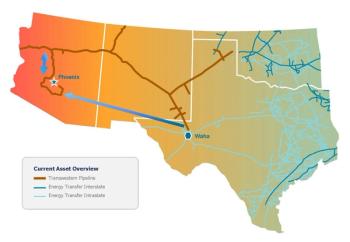
Baker Hughes Achieves 28% Reduction in Greenhouse Gas Emissions
The company's annual corporate sustainability report outlines significant progress towards its goal of net-zero emissions by 2050.
Baker Hughes has disclosed in its 2022 corporate sustainability report a reduction of nearly one-third in emissions from its operations. This achievement signifies substantial progress towards its net-zero emissions by 2050 goal. The report further documents the company's advances in implementing more sustainable operations by enhancing its environmental, social, and governance metrics.
"Last year represented a period of significant change for Baker Hughes, where sustainability became a key aspect of our business,” Lorenzo Simonelli, chairman and CEO of Baker Hughes. “Amidst a challenging global energy landscape, we have maintained our commitment to our customers' energy transition while keeping focus on our aim to operate responsibly and sustainably."
Allyson Anderson Book, chief sustainability officer and sustainability steering team chair at Baker Hughes, added, "Our sustainability strategy is integral to our broader business strategy and reflects our commitment to the key areas of people, planet, and principles by integrating sustainability into our culture. We have prioritized data integrity, transparency, and controllership in our annual sustainability disclosure, and have strived to make our report more inclusive and accessible."
Key areas of progress for Baker Hughes in 2022 included:
Achieving a 28% reduction in Scope 1 and Scope 2 greenhouse gas emissions relative to the 2019 baseline year. This was accomplished through energy-efficiency initiatives, facility consolidations, and increased usage of renewable and zero-carbon electricity. In 2022, 26% of the company's electricity was sourced from zero-emissions sources. The company further reported a 31% reduction in emissions from all operated facilities compared to the baseline year 2019.
Conducting a detailed materiality assessment to develop a cohesive sustainability strategy. Using best practices and alignment with globally recognized reporting frameworks like the Global Reporting Initiative (GRI) and the Sustainability Accounting Standards Board (SASB), the company was able to identify material gaps, buffer energy transition risks, and discover opportunities.
Improving performance in diversity, equity, and inclusion (DEI). Recognizing the importance of diversity to innovation and competitiveness, the company enhanced its reporting with over 20 new metrics and published its first DEI report in June 2022.
Prioritizing employee safety and health, with 100% of Baker Hughes security personnel and embedded security contractors completing human rights training in 2022. The company also reported strong performance in occupational safety and health.
Increasing community giving, with total charitable pledges and contributions through the Baker Hughes Foundation reaching $75 million in 2022.
The company also highlighted its internal "Carbon Out" initiative, launched in 2021, which was expanded in 2022 to further operationalize sustainability and advance towards its net-zero emissions goals.
Baker Hughes has maintained transparency in its reporting by conducting two separate reviews of its annual sustainability report—one internal audit and one by an independent accounting firm. The corporate sustainability report aligns with GRI-Core standards, SASB, the United Nations Sustainable Development Goals, and the Task Force on Climate-related Financial Disclosures. Baker Hughes is also a participant in the UN Global Compact Initiative.
Newsletter
Power your knowledge with the latest in turbine technology, engineering advances, and energy solutions—subscribe to Turbomachinery International today.




